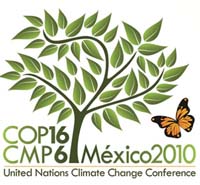Japan opposed to extension of Kyoto Protocol
- By Zhang Fang
 0 Comment(s)
0 Comment(s) Print
Print E-mail
China.org.cn, December 1, 2010
E-mail
China.org.cn, December 1, 2010
|
Don't?Miss: |
The Kyoto Protocol mainly targets a group of rich nations that account for 27 percent of total global emissions, but Japan wants a broader list of countries included, especially the top two emitters of greenhouse gases, China and the U.S.
But Ailun Yang of Greenpeace China said Japan shouldn't run away their emissions cutting target simply because of America's weak action on climate change.
The U.S. signed the Kyoto Protocol in 1997, but the George W. Bush administration pulled out of it in 2001.
"What Japan is doing will seriously delay the progress of the conference, and this is a disaster for the global climate." Yang said.
"As a developed country, Japan has obligations to fulfill its emissions reduction target, and it's unreasonable to use China as an excuse to shirk their responsibility."
Yang said China had made long-term commitments to reduce its carbon emissions.
In the run up to the Cancun climate talks, nine Japanese industrial associations released a joint statement on November 26, setting forth their opposition to an extension of the Kyoto Protocol.
Yang said Japan's position had been "kidnapped" by short-sighted domestic companies who failed to see the benefits that emission reductions would bring for them, such as business opportunities in energy-saving technology.
Nearly 200 nations are taking part in the UN Climate Change Conference which runs from November 29 to December 10 this year.
The meeting requires unanimity to progress and is seeking a successor to the Kyoto Protocol, which obliges around 40 developed nations to cut their emissions by 5.2% below 1990 levels between 2008 and 2012.
Go to Forum >>0 Comment(s)
 Add your comments...
Add your comments...
- User Name Required
- Your Comment
- Racist, abusive and off-topic comments may be removed by the moderator.






